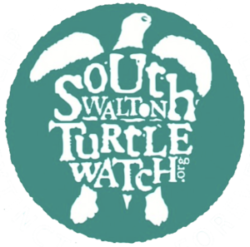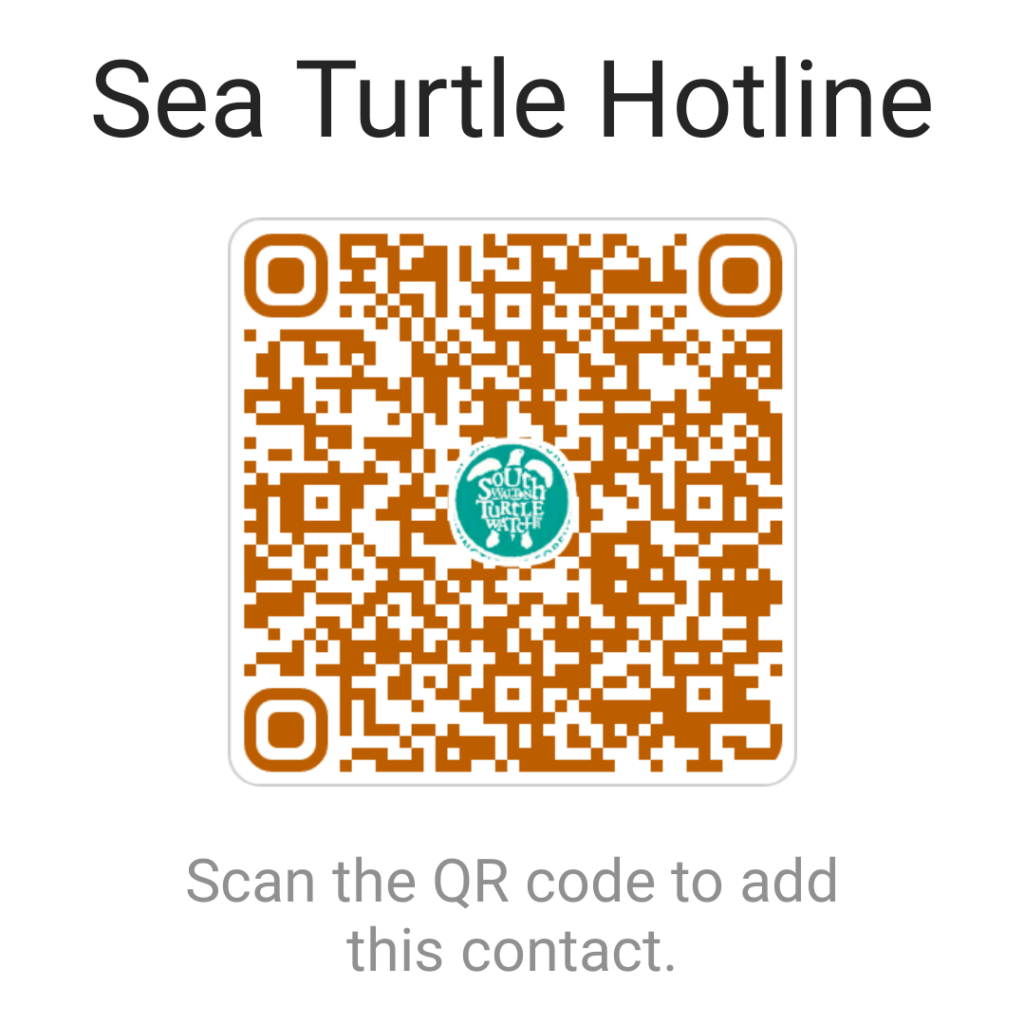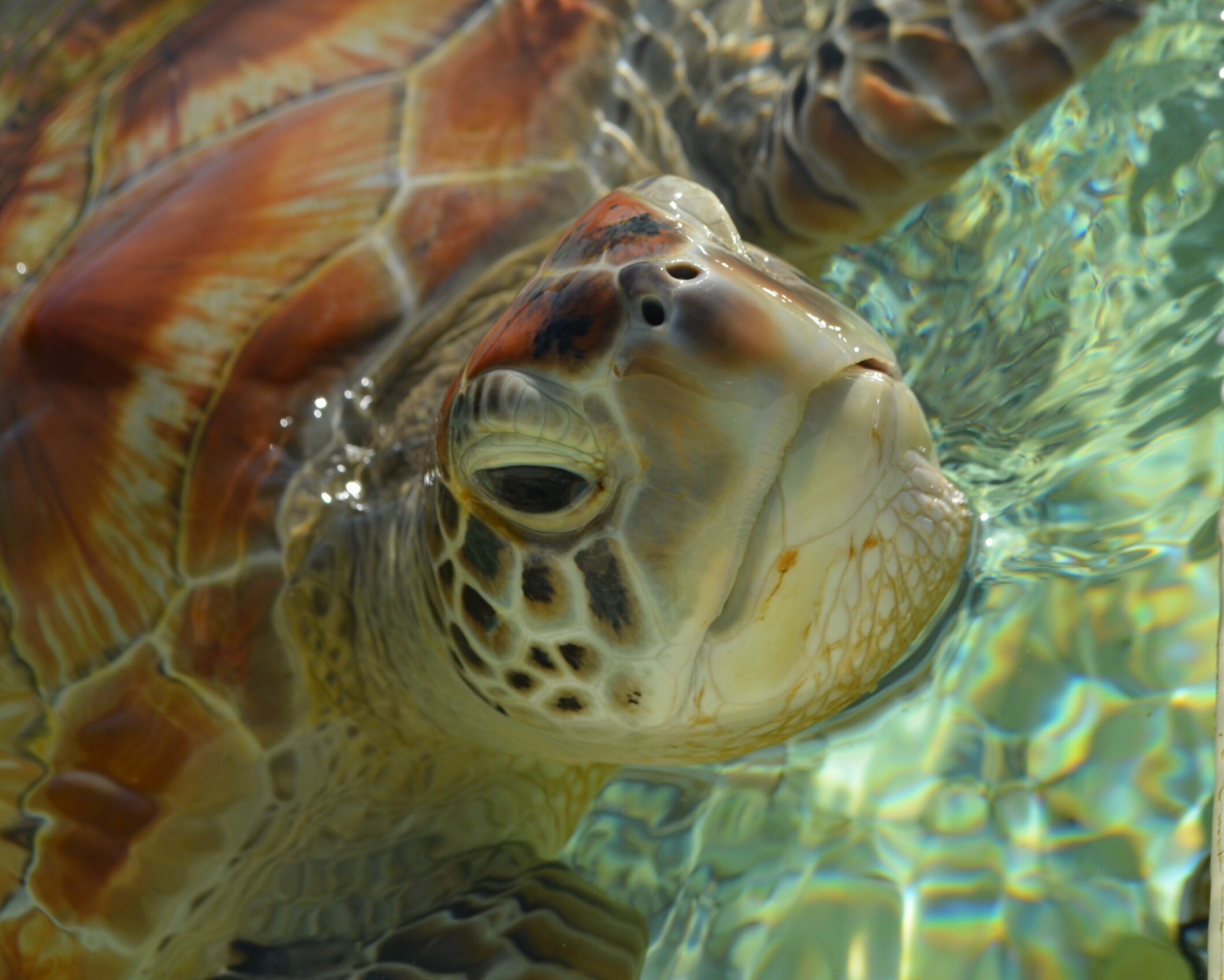FREQUENTLY ASKED QUESTIONS
Q: Who do I call and what should I do if I see a sick, stranded, or entangled sea turtle?
Call our Sea Turtle Hotline: 850-865-4503 to report sightings of sea turtles or hatchlings. NEVER PUSH OR ATTEMPT TO ASSIST STRANDED ANIMALS BACK TO THE WATER! More harm can be done and it is illegal without proper permits. If the animal is alive, try to stay with it until help arrives. Do not take any action before calling for help. Photos and a location/gps are extremely helpful when reporting sightings and can be sent to the hotline number as well. Leave a message and someone will get back to you as soon as possible.
Q: Who do I call if I see someone harassing a sea turtle, hatchling or vandalizing a nest?
It is illegal to handle, harass, or interfere with sea turtles, either in the water or on the beaches. Call local, non-emergency law enforcement to report any illegal behavior with sea turtles or nests.
Q: Where can I see sea turtles or nest hatches?
Sea turtle nesting and hatching occurs primarily at night. When nature is at work, there is no predicting when activities will happen so we aren’t able, nor are we permitted to conduct public viewings of turtles. If you happen to be so lucky to witness a nesting turtle or hatchlings, it is extremely important to remember the following:
- Never touch or pick up sea turtles or assist them to the water. It is illegal without proper permits.
- Never shine lights on sea turtles. Lights can disorient or blind them and interfere with their ability to find the water safely, causing harm and possible death by dehydration or predation. Turn off all flashlights, cell phone lights, camera flashes, and beach front lighting so turtles can find the open water quickly and safely.
- Give nesting turtles space so they can dig their nests and deposit eggs. Do not surround her or cross in front of her. Noise, lights and movement can cause a turtle to abandon her nesting attempt and sometimes forces her to dump her egg clutch in the water to peril.
Follow our Facebook page to watch live nest excavations during our nesting/hatching season.
Educational opportunities are available at our Turtle Talk Tuesdays. Held every Tuesday during the months of June, July and August. Staff and volunteers are happy to meet you and teach you and your family about our local sea turtles. This is a great opportunity to pick up red pocket flashlights for crab hunting, sea creature crayons, activity books for kids, and to see replicas of a sea turtle skull and carapace (shell). TTT is held in Rosemary Beach near Amavida Coffee Roasters, 104 N. Barrett Square, Rosemary Beach, Florida, Tuesdays at 9 a.m. – 10 a.m. in June, July and August.
Q: How can I help or volunteer?
Volunteers are required to complete an application. Upon acceptance, training by Florida Fish & Wildlife Conservation Commission (FWC) must be completed in addition to field training by SWTWG staff.
Volunteer positions for our 2022 season are full at this time. When we have volunteer openings, we will post a volunteer application link on our website and our social media pages.
Volunteers for our survey team must be 18, live locally, and commit to at least 2 days per week throughout the nesting season, May 1 through October 31.
Opportunities to volunteer and help with our Hole Patrol Team during nesting season are available for visitors and families with children during their vacation stays. Look for these opportunities during nesting season on our social media pages.
Other ways to help during your visit to our beautiful beaches are to keep the beaches clean, dark, and flat.
- CLEAN: pick up all belongings at the end of your beach day. Remove trash, toys, furniture, food, tents, etc. so that turtles don’t hit obstacles when they are on the beach and become trapped or entangled.
- DARK: Turn off all beach front lighting, close shades and blinds, use red lights if you have to be on the beach at night. NEVER shine lights of any kind on sea turtles!
- FLAT: Fill in all holes at the end of the day so turtles or tiny hatchlings and baby birds don’t fall in and become trapped. Holes can be fatal to animals and dangerous to people as well. Knock down sand castles at the end of the day so they don’t become traps or obstacles to nesting turtles and tiny hatchlings.
Do you have any other questions? Please reach out to us:






